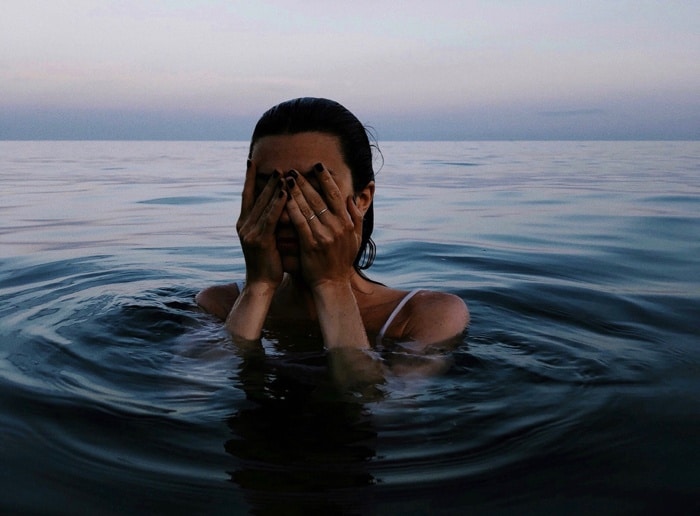
If you live by the ocean or you’re planning to spend some vacation time near one this summer, you may be tempted to go swimming in those wild waters.
A recent study, however, suggests you should use caution.
First, A Recap on the Skin’s Microbiome
We talked about the skin’s microbiome in a previous post. (Check it out here.) As a quick recap, a microbiome is a balance of good and bacteria that live together in a system. We have a microbiome in the gut, where the good bacteria contribute to good digestion and immune function.
The skin has a microbiome, too, with good bacteria that help protect us from skin cancer, infection, and disease. Tiny microorganisms live in the skin’s layers, working to protect against harmful organisms, tame inflammation, heal wounds, and shut out allergens and environmental toxins.
This microbiome is very important to the health of the skin and our overall health, so it’s important we take care of it. We can do that by avoiding harsh and antibacterial cleansers, eating more probiotic-rich foods (which nourish the good bacteria in the gut and on the skin), and using safe and natural skincare products to promote the health and strength of the skin.
The Ocean May Harm Your Skin’s Microbiome
Unfortunately, swimming in the ocean may negatively affect your skin’s microbiome, increasing your risk of infection.
Previous studies have shown a connection between swimming in the ocean and infections, so scientists wanted to explore this connection to see if they could figure it out.
They recruited nine volunteers at a beach who did not use sunscreen, had infrequent exposure to the ocean, had not bathed within the last 12 hours, and had used no antibiotics over the previous six months.
They swabbed the back of each participant’s calf, then had them all enter the ocean and go for a 10-minute swim. Then they swabbed the calves again after the participants had air-dried completely, and then swabbed again at 6 and 24 hours after the swim.
Before going on their swim, all the participants had different communities of bacteria in their skin’s microbiomes, which is normal. After the swim, however, they all had similar communities on their skin, and these were entirely different from the pre-swim composition. Six hours later, the microbiomes had started to revert to their pre-swim composition, and at 24 hours, they had nearly restored their normal communities.
One of the new bacteria species belonged to the Vibrio species, which includes the bacterium that causes the disease cholera. This particular species was still there six hours later, showing a specific affinity for human skin. The fraction found on the skin was also 10 times greater than the fraction found in ocean water.
The results showed that swimming in the ocean—which is often contaminated—can alter the skin’s microbiome in such a way that it can increase the risk of infections.
How to Stay Safe at the Beach
Though the ocean may look clean and refreshing, it is unfortunately often contaminated with microbes, bacteria, parasites, and pollutants that can cause health problems.
In the year 2009 alone, there were 18,682 days of closures and notices because of water contamination and pollution at beaches throughout the country.
Exposure to disease-causing microorganisms in oceans and other waterways have been linked to digestive illnesses, hepatitis, dysentery, giardiasis, respiratory infections, and ear, eyes, nose, and throat infections.
To help safeguard yourself and your family, follow these tips when going to the beach:
- Don’t go into the water if your skin is dry, or if you have a cut, scrape, or other wound. A weakness in the skin barrier gives microbes a way to get in.
- Children, the elderly, and people with weakened immune systems are the most likely to develop illnesses after coming into contact with polluted water.
- Plug your ears, and don’t drink in the water if you can help it. Many illnesses are related to the ingestion of the water.
- Watch for any signs showing the beach is closed or the water is unsafe because of contamination.
Have you ever suffered from an infection after swimming in the ocean?
Source
Fenig, B. (2010, August 20). 9 Surprising Diseases You Can Catch In The Nation’s Oceans. Retrieved from https://www.huffpost.com/entry/photos-seven-suprising-wa_n_686252
Science Daily. (2019, June 23). Ocean swimming alters skin microbiome, increasing vulnerability to infection. Retrieved from https://www.sciencedaily.com/releases/2019/06/190623122533.htm

